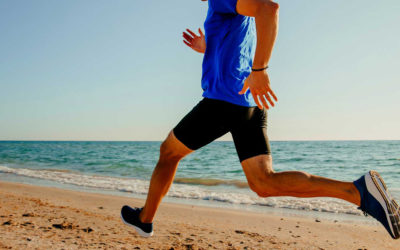
A Beginner’s Guide to Running
Running. It’s one of those sports that can pretty much be done anytime, anywhere. It’s really hard to make excuses to yourself as to why you shouldn’t go. No, don’t worry, self-justification is always allowed! But if you do fancy getting into running, it really is one of the most beautifully accessible forms of exercise that’s brilliant for both your fitness and your mind. So, here are a few tips on how to get started – a beginner’s guide to running.
Take it easy
Unsurprisingly, you want to start slow. If you’ve never been a runner before or have perhaps taken a while off, then don’t expect too much of yourself. You won’t be breaking the 4-minute mile barrier any time soon, sorry to disappoint.
Getting going is the toughest step, so you could run a bit walk a bit at first, or even jog on the spot in your living room for 5/10 minutes if you want. Anything to get moving, and then slowly build up your distance from there, but certainly don’t worry about speed at this stage.
Treat your feet
Your feet and knees can take quite a pounding if you’re running frequently, so it’s crucial to have the right footwear to make sure you’re helping your body out. The last thing you want is an injury straight away. Go on, get some jazzy new running shoes to match the colour of your Staminade.

Get stretching
Yes, there are those really annoying people that can run every day, never stretch, and come off perfectly from it. Those people are rare, false role models! Don’t simply assume you’re one of them.
Proper warm-ups, warm-downs and stretching are crucial to any form of exercise to ensure you don’t come a cropper. You may well think these are too boring to spend your precious time on, but you’ll be even more bored if you’re out injured sat on the sofa for 6 weeks.
Rest up and relax
Top athletes prioritise rest and recovery just as much as they do training hard. In fact, it’s part and parcel of their training programme! So, it should be yours too.
If you’re running 6 days a week, that’s too much. Build in rest days to allow your legs to recover, or try out low impact activities like swimming or yoga that use different muscle groups. You’ve earned that rest, so make the most of it!
Mix things up
If you’re running to try and improve your fitness, then try adding in different forms of exercise to your training programme as well. If you run the same 5km loop day in, day out, your body will reach what’s called a fitness plateau, where it adapts to the exercise and no longer gets fitter/ stronger from it.
To counteract this, try cycling, rowing, or the cross trainer perhaps. A bit of variety will not only help to improve your fitness and ensure you don’t plateau, but will help to minimise injuries that can occur from the same repetitive movement e.g. running 7 days a week!
So, there’s a few tips to try and help you start out running. You might think it crazy to give running a go during the peak of an Australian summer but have no fear, you’ll be fine during the coolest parts of the day. So, stick to the early mornings before the sun’s up, or late evenings once the sun has gone down and make sure to hydrate plenty before and rehydrate plenty afterwards!
You might be surprised at just how addictive running can be.
You might also be interested…
Is Cycling or Running Harder on Your Body?
Cycling and running require different levels of stamina and different muscle groups. So, which is harder on your body? Read on to find out.
When is the Best Time to Run in Summer?
While it’s great to run in Summer, it sure can get hot in Australia, scorching hot! We take a look at when the best time to run in Summer is.


